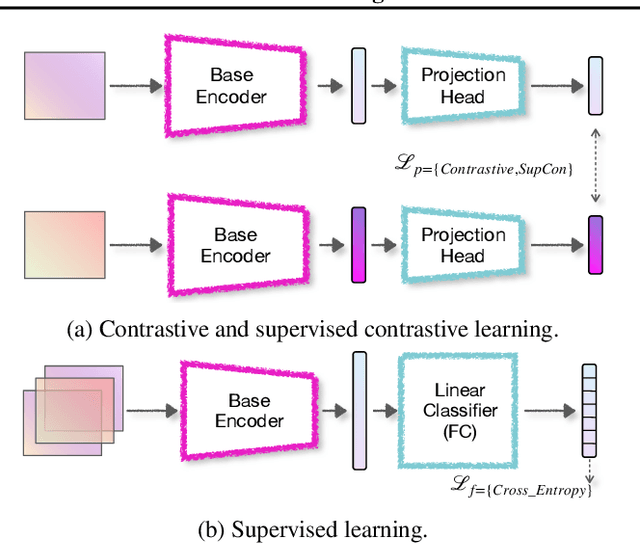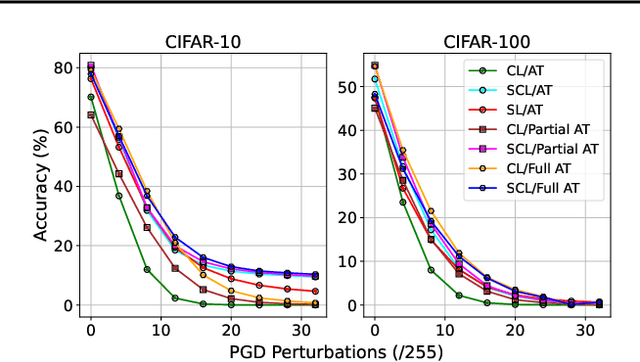Fatemeh Ghofrani
An Empirical Study of Accuracy-Robustness Tradeoff and Training Efficiency in Self-Supervised Learning
Jan 07, 2025Abstract:Self-supervised learning (SSL) has significantly advanced image representation learning, yet efficiency challenges persist, particularly with adversarial training. Many SSL methods require extensive epochs to achieve convergence, a demand further amplified in adversarial settings. To address this inefficiency, we revisit the robust EMP-SSL framework, emphasizing the importance of increasing the number of crops per image to accelerate learning. Unlike traditional contrastive learning, robust EMP-SSL leverages multi-crop sampling, integrates an invariance term and regularization, and reduces training epochs, enhancing time efficiency. Evaluated with both standard linear classifiers and multi-patch embedding aggregation, robust EMP-SSL provides new insights into SSL evaluation strategies. Our results show that robust crop-based EMP-SSL not only accelerates convergence but also achieves a superior balance between clean accuracy and adversarial robustness, outperforming multi-crop embedding aggregation. Additionally, we extend this approach with free adversarial training in Multi-Crop SSL, introducing the Cost-Free Adversarial Multi-Crop Self-Supervised Learning (CF-AMC-SSL) method. CF-AMC-SSL demonstrates the effectiveness of free adversarial training in reducing training time while simultaneously improving clean accuracy and adversarial robustness. These findings underscore the potential of CF-AMC-SSL for practical SSL applications. Our code is publicly available at https://github.com/softsys4ai/CF-AMC-SSL.
On the Role of Contrastive Representation Learning in Adversarial Robustness: An Empirical Study
Feb 05, 2023



Abstract:Self-supervised contrastive learning has solved one of the significant obstacles in deep learning by alleviating the annotation cost. This advantage comes with the price of false negative-pair selection without any label information. Supervised contrastive learning has emerged as an extension of contrastive learning to eliminate this issue. However, aside from accuracy, there is a lack of understanding about the impacts of adversarial training on the representations learned by these learning schemes. In this work, we utilize supervised learning as a baseline to comprehensively study the robustness of contrastive and supervised contrastive learning under different adversarial training scenarios. Then, we begin by looking at how adversarial training affects the learned representations in hidden layers, discovering more redundant representations between layers of the model. Our results on CIFAR-10 and CIFAR-100 image classification benchmarks demonstrate that this redundancy is highly reduced by adversarial fine-tuning applied to the contrastive learning scheme, leading to more robust representations. However, adversarial fine-tuning is not very effective for supervised contrastive learning and supervised learning schemes. Our code is released at https://github.com/softsys4ai/CL-Robustness.
 Add to Chrome
Add to Chrome Add to Firefox
Add to Firefox Add to Edge
Add to Edge